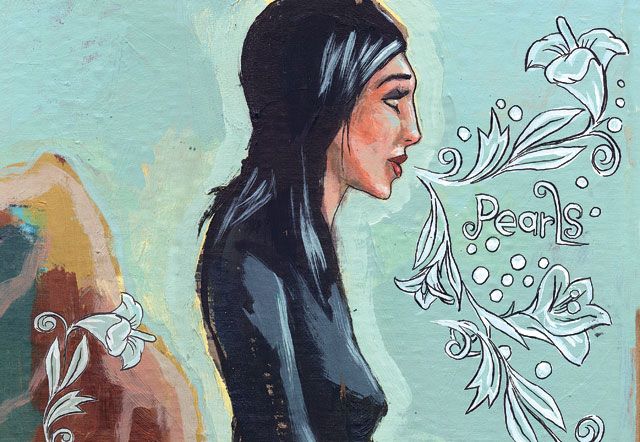The Arabian peninsula in the 1950s is incomparable to the UAE of today. Fishing and pearling were still traditional trades and expatriates were few and far between. Today's UAE is cosmopolitan, awash with burgeoning landmarks and successful commerce and industry.
It is in these heat-battered wild mountains of the peninsula that Noora, the heroine of Maha Gargash's first novel The Sand Fish, grows up.
She lives with her father and brothers. Her mother has died and her father is suffering from a mental illness caused by the "heat" of the mountains. So it is down to her and her older brother, Sagar, to run the house and provide for the family.
Noora carries water, collects wood in much the same way as the men, and lifts up her clothes when scrambling down hills, much to her brother's disdain.
This wild-at-heart freedom changes when Noora is expected to marry a wealthy pearl merchant: a marriage that Sagar arranges without her knowledge. Emotions run high for Noora: anger at her brother Sagar and worry about her father. Things only become more complicated for Noora after she meets the tall and handsome Rashid in a secluded cave — her first intimacy and love for a man betrothed to another.
For Western audiences, if not local book fans, the fact that Noora is the third wife to the merchant will also hit home strongly. Not only this but Noora's illegitimate pregnancy is an interesting addition to the character, particularly after she chooses her duty and her husband over the option of running away with her lover.
Gargash's characters are both believable and identifiable for all those reading from the UAE.
Designed to both inform an international audience of past days in the emirates and to provide insight for a younger generation of Emiratis, the debut novel provides an intriguing plot blended with snippets of history and culture.
However, traditional practices are presented obviously and are too descriptive, taking the reader away from identifying fully with the characters.
Frequent italicised Arabic terms are also distracting for readers familiar with UAE culture and traditions but would be well received by an audience with little knowledge of the Arab world.
Noora's presentation as a gung-ho heroine bent on staying carefree will be appealing to a Western readership. However, with her forced marriage and her own choice of duty over love, international readers more open to feminist themes may find the ending disappointing.
When Noora gives birth at the end of the book, her labour pains mirror the thunder and lightning of a desert storm. It is an age-old technique for novelists around the world and is a little obviously old-hat.
The result is a somewhat unfinished ending, which has more scope for expansion.
The Sand Fish
By Maha Gargash,
Harper, 368 pages, $14.99













